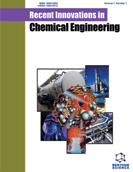Abstract
The methylation of DNA is an epigenetic modification that can play an important role in the control of gene expression in mammalian cells. The aberrant or accidental methylation of CpG islands in the promoter region has been observed for many cancer-related genes resulting in the silencing of their expression. Hence, it has become a focus of scientific attraction currently. Many of the early procedures developed gave only somewhat limited information about methylation patterns, for example, the overall levels of 5-methycytosine in the genome or the frequency of methylation of cytosines within certain restriction sites. However, in the last few years, there has been an explosion of interest in DNA methylation, and with it, many new and powerful techniques have been developed to facilitate methylation analysis, especially the advent of many high-throughput methods (e.g., restriction landmark genome scanning, differential methylation hybridization, and DNA microarray). In this paper, the key techniques currently available are reviewed and the advantages and disadvantages are discussed. This review will be valuable in selecting the best techniques to address particular questions concerning methylation status of genome DNA.
Keywords: DNA methylation, Epigenetic, Gene expression, Nonspecific methylation analysis, Specific methylation analysis















